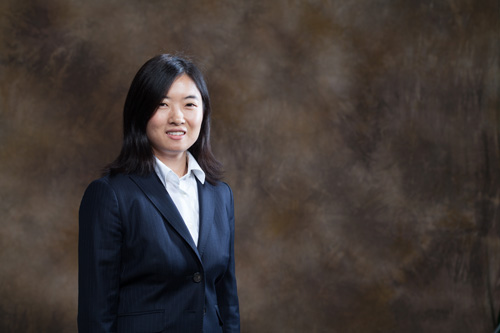Jing Yang, the newest assistant professor in the department of electrical engineering, examines and models the underlying structure of diverse kinds of complex networks. These include traditional electrical engineering examples: wireless communications, power grids and data centers. But Yang is also interested in biological networks, such as the human brain, and social networks.
In one of her current research projects, Yang is studying the way new energy harvesting technology could affect mobile communication networks. Mobile devices that use solar or thermal energy would have prolonged battery lifetime and be much more environmentally friendly. However, the energy harvesting feature also brings new challenges to the design of these mobile communication systems, as energy derived from ambient sources tends to be unregulated, intermittent and small. Yang is developing theoretical models and practical solutions that will help these companies design devices and transmission technologies that can take advantage of new energy sources more effectively and efficiently.
Data centers, such as the collections of servers that store information for large internet companies, are another important aspect of our communications system. Yang is helping these centers develop energy policies that will make them more efficient, using models and simulations to find new energy saving approaches.
Yang is also using graphical and mathematical models to map complex biological and social systems. These models employ points called nodes, which are connected by lines called edges. A graphical model of the human brain, for example, might represent different parts of the brain as nodes, and the edges connecting them would illustrate the relationships among the parts. Yang is also using this type of model to show relationships within social groups. Examining networks with these models can reveal relationships and patterns that were not evident before, and they could have broad applications in fields such as medicine and social policy.
Yang received a doctoral degree in electrical and computer engineering from the University of Maryland and a Bachelor of Science in electrical engineering and information science from the University of Science and Technology of China. Before coming to Arkansas, she was a postdoctoral research associate at the University of Wisconsin-Madison.
“I was impressed by the environment,” she says of her decision to join the University of Arkansas faculty. “People are friendly. The department is supportive of teaching and research.”
Contacts
Camilla Medders, director of communications
College of Engineering
470-575-5697,
